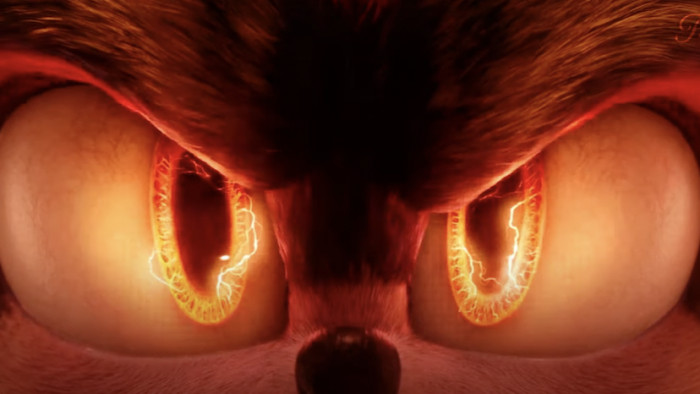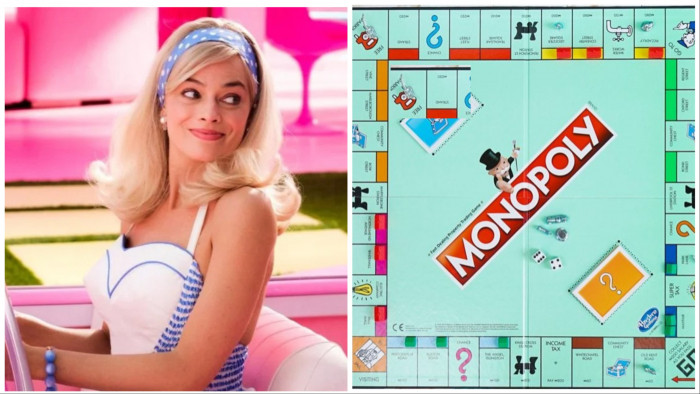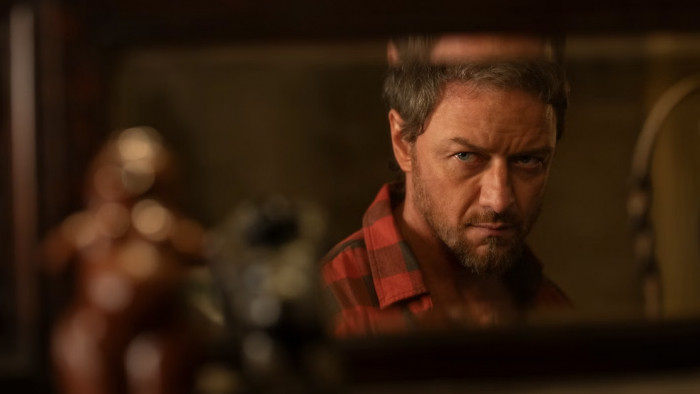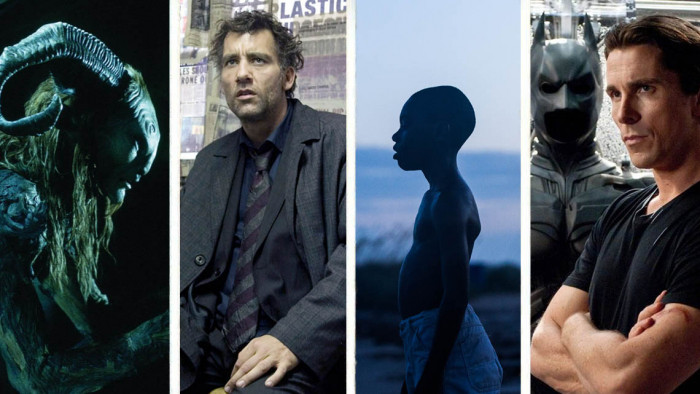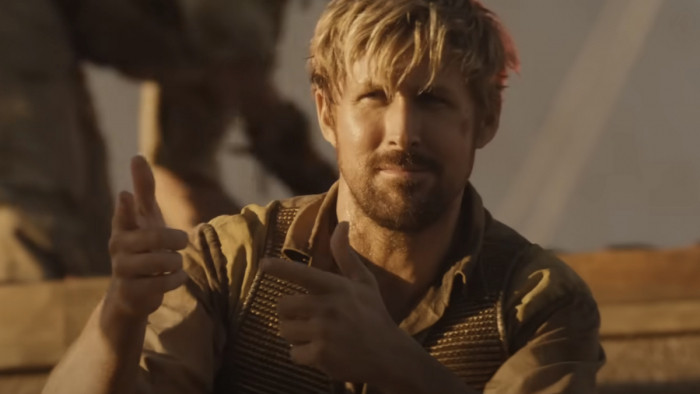What better way to celebrate beating cancer than donning sequins and snogging Matt Damon? Michael Douglas tells Andrew Dickens about his sensational screen transformation
Michael Douglas is wearing a filthy look. It’s the sort of look you’d wear if someone sprayed salt water in your face which, coincidentally enough, is what has just happened.
It’s not the first time, either. We are sitting on a small terrace, yards from an unbelievably picturesque cove in the grounds of a very swanky Antibes hotel. The wind is up and Mother Nature is ensuring that a 68-year-old two-time Oscar-winning megastar, who has beaten cancer and is married to one of the world’s most beautiful women, knows his place. Hence the periodic dousing with sea-spray. The terrace probably seemed like a good idea; a serene refuge from the madness of the Cannes Film Festival. But, even though he’s not complaining, Douglas looks cheesed off. And this is not a man you want to cheese off. This is, after all, Gordon Gekko of Wall Street, William Foster of Falling Down and Jack Colton of Romancing The Stone; he’ll destroy your company, shoot up your house and drag your wife off to the jungle.
Douglas is king of the on-screen Alpha Male, whether it‘s the fiscal bullying of Gekko, the domestic bullying of Oliver Rose in War Of The Roses or the priapic protagonists of Basic Instinct and Fatal Attraction.
But now Douglas has not only moved to the other end of the sexuality spectrum, he’s dressed the spectrum in sequins and mink.
He plays Liberace, the 20th century’s most flamboyant man, in Behind The Candelabra: Steven Soderbergh’s adaptation of a book by Scott Thorson (played by Matt Damon) detailing his secret affair with the pianist who, to the amazement of anyone with a barely-functioning gaydar, managed to keep his homosexuality a secret for his entire life. I’m here to ask Douglas what caused this seismic shift.
So, what appealed to you about Liberace?
In 2000, Steven Soderbergh and I were doing this movie Traffic, based on your illustrious British TV series, in which I played a drug tsar. Steven looked at me one day and said, “Have you ever thought about playing Liberace?” And I thought, “What the f*ck is he thinking?” I thought he was messing with me. I don’t know why he thought that, but I guess he remembered and, in 2007, he called me up and said, “I have something for you”. He was fascinated with Liberace’s story and he’d always been trying to find a way into it. Somebody had turned him on to this book, Behind The Candelabra, by Scott Thorson, one of Lee’s [Liberace’s] lovers. He sent me the script and said, “Matt Damon wants to play Scott”. I’d just come out of a cancer bout and my oldest son was in federal prison and this and that, so it was like from nirvana, a gift from the gods.
Did you know Liberace at all?
I met him briefly once when I was about 12 at a stop sign in Palm Springs, California. I was in a car with my father and he just stopped to say hello, this guy in this Rolls-Royce convertible with sunlight bouncing off the gold and diamonds round his fingers, round his neck. His hair was perfect. And he just looked like this happy guy. He was a wonder, really well liked, really popular, very generous, great party thrower. That was about the only time.
Did you know that he was gay?
Yeah, in hindsight. I was young, but I was aware. Because he brought so much fun, he was so contagious, I don’t think the audience really thought about it. He just made you smile and you felt so happy. You were sucked in and the old ladies didn’t really care about it.
Obviously, he went to great lengths to hide his sexuality, and it’s still the case that some people in the public eye don’t feel that they can come out. Does that upset you?
It’s a much smaller minority of people who think they still have to stay in the closet. It’s quite interesting to see how fast it’s all changed.
Do you think that the public would struggle to deal with an openly gay actor playing a straight man? It seems to happen a lot the other way round...
It’s a good question. Without naming names, I certainly think there are a couple of people out there who have not come out in the spirit of protecting their careers and livelihoods. It’s probably a little bit more difficult going that way. I think that’s true.
In the US, the film’s showing on HBO and not getting a theatrical release. Some people are suggesting it’s ‘too gay for the USA’. How does that make you feel?
It wasn’t that. I think the studios, in their infinite wisdom, even with Matt, myself and Soderbergh attached, thought it would only attract a gay audience. And with the cost of marketing movies and making them, they didn’t want to take that risk. The studios are [being criticised so much] right now that I don’t have to pile it on, but so be it. You know, most of them just don’t want to have to deal with a smaller movie that still requires marketing budgets and may not have as big a return. Working with HBO has allowed us to come to Cannes and be invited to be in competition and treated like a real movie. And the movie’s showing around the rest of the world. And the reality is the rest of the world now has become close to maybe 70 per cent of the USA’s business. So I see it as the studios’ loss.
We have to ask you about Rob Lowe’s face in the film [he plays a plastic surgeon with a taste for his own product]. Was it hard not to laugh?
We laughed our asses off the first day he came in. We laughed and all we could think about was what pain he must be under. His face was pulled back, it was great, he was funny. He had a ball.
We assume plastic surgery is something you’d never contemplate?
I’d contemplate it in a minute, are you kidding? Are you talking about real life? I’d contemplate it in a minute. Why not? Whatever works.
Even with your long career, did you have to add new skills to your acting repertoire doing this?
Yeah, sure. Piano, flamboyant stage performer. There was a certain style that the piece required which I hadn’t done before. This was a character piece and all my career I’ve played contemporary guys with an angst of one sort or another. There was a theatricality that was a joy.
You’ve played a lot of very obvious Alpha Male characters in your time, though this goes against that quite a bit. Of those, which were the most fun to play?
I consider Lee a totally Alpha Male character. He may be gay, but he’s an Alpha Male on top of his game. The Alpha characters… I don’t know. The characters that were the most fun to play were the ones that were ambivalent, darkly comic, unpredictable. I’m thinking back to Falling Down, War Of The Roses, Wonder Boys. I love trying to do comedy. It’s not something I’m inherently natural at, but I enjoy trying to pull it off. There’s a little picture no one’s ever seen called Solitary Man I did a few years ago. Those are the ones.
What about Jack Colton from Romancing The Stone?
I produced those pictures, too, so they were pain in the ass productions which had to look effortless. I’m proud of the execution and how they turned out, but can’t tell you the nightmare they were to shoot. Third World countries and logistics. The joy looks effortless.
Have any roles you’ve played impacted you in a big way?
Two come to mind. One was The China Syndrome, because of the issue of dealing with the meltdown of a nuclear power plant and the fact that 10 days after we opened, we had the meltdown at Three Mile Island in Harrisburg, Pennsylvania. That was an epiphany for me and has really put me on this long road towards the elimination of nuclear weapons. And I guess the Gekko role was a surprise – that this villain became such a protagonist to Wall Street [traders]. They loved this character, found him charming, but I was really portraying a pretty bad guy.
Do Wall Street guys still come up to you?
Still do. “You’re the man! You’re why I went to business school!” Really? “Gordon, yeah!” He was bad guy, you know? “Nah, nah, nah.”
Did your throat cancer change the way you looked at your job?
Yeah, I was happy I still had a job. I was so grateful that after this whole thing I had this wonderful project to start up again after a three-year hiatus. I‘ve got another really good picture called Last Vegas coming out in November, I’m starting a picture next week with Rob Reiner and Diane Keaton called And So It Goes. I start another picture, The Reach, in September that I’m acting in and producing with a French director called JB Leonetti. I’m working a lot, you know. I feel blessed.
Some people might feel they need to retire, or at least take their foot off the gas…
Well, yeah. I had the foot off the gas and was halfway to the grave, so after all that you have a rebirth, renaissance and desire. You want to kick ass.
We’re in Cannes. Will you be kicking ass at the parties?
I’ve not had a picture for a long time that’s in competition, so I’m living a pretty hermetic life here. But I’ve got one more day of this, then our screening, then I’ll probably break loose and have some fun.
Did your illness change the way you looked at life outside of work?
Yeah, it gives you much more of a sense of counting the years. I’m coming into, I would definitely say, my third act. I have my father, who I admire so much in how he’s conducted his life and his third act. It makes you much more conscious of the days and years.
How did you used to think?
I just didn’t think about it. But having a new family – I’ve got children who are 12 and 10, which I never anticipated – your priorities change. I certainly cherish the time with them and appreciate a good marriage.
Finally, when was the last time you had a Falling Down moment?
Just before I came here last Thursday, I had to drive up to my 50th high school reunion. I went up the Connecticut turnpike, because I lived in Connecticut when I went to school. And it was bumper to bumper traffic for two hours. I thought I was going to kill someone.
So it’s always the traffic?
Traffic always gets you.
Behind The Candelabra is released in selected cinemas on 7 June
(Image: Rex Features)
Latest
Related Reviews and Shortlists



